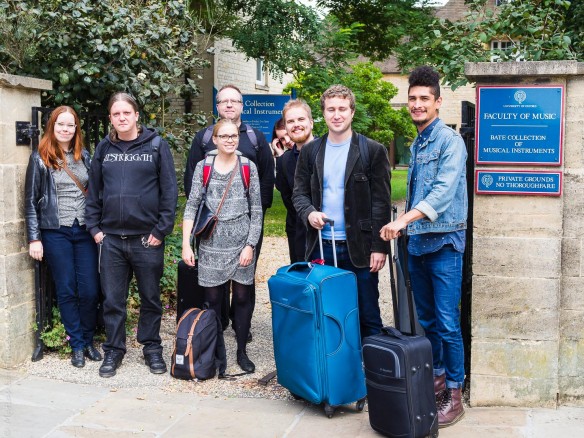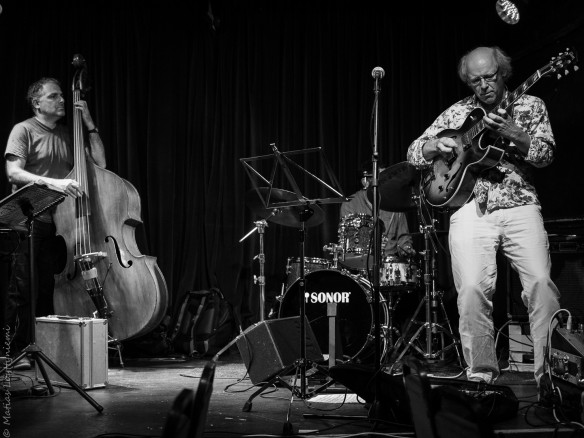We began planning the trip already in the fall of 2013. Our student organisation Synkooppi had not been abroad for quite a while, and some of us were eager for traveling abroad. At the meeting of the board of Synkooppi we chose the Perspectives on Musical Improvisation II conference in Oxford as the main objective of our study trip.
After applying for the grant for student organisations from the Student Services, getting the people together, booking hostels and flights, registering for the conference, and sending dozens of emails, our 9-person-group of students varying from undergraduate to PhD-student was ready to set course for London Gatwick on 8th of September 2014.

The first morning of the conference dawned with a mixture of white bread, Nutella, cold instant-coffee and everlasting enthusiasm. Conference registration began 9 o’clock and our small group of Finnish students seemed to be first to register at least judging from the last minute organizing. In the end, it appeared that there were as many delegates from the University of Helsinki as there were from the University of Oxford. James Andean, teacher of music technology at the Sibelius Academy, aptly described our clique as “the Wall of Finland”.
Before the first presentation, we got to enjoy a British conference lunch, which was a huge disappointment for someone used to the well-balanced meals of UniCafe: for £10 we got sandwiches and fruits! Apparently, it is a common lunch in Britain so be wary before paying expensive lunch vouchers in advance. I recommend asking what lunch actually includes.
The first speaker of the conference was Gary Peters who created an inspiring framework, to which it was great to reflect forthcoming speakers. While sitting in the hall listening to the professor’s philosophizing, the majority of the speech seemed to evade consciousness, but still many of his interesting key points stuck in mind. Peters was pondering on Arnold Schonberg’s music philosophy, the philosophies of Immanuel Kant and G.W.F. Hegel, the characteristics of improvisation, and the role of habit and obligation.
In the evening our group split up to different events. There was an organ recital at the magnificent Christ Church and at the same time The Oxford Improvisers were performing at the Newman Rooms. Improvisers were playing free through and through. Even the configurations of ensembles were made up in the situation.

The following days of the conference continued with a vast variety of themes. We got to listen to a presentation about labour distribution in avant-garde music, a fascinating analytical presentation on recursion in North Indian alap-improvisation as well as an interpretation of Robert Schumann’s improvisation. Final thoughts and last comments were analyzed in a panel discussion. Speakers pondered on the field of improvisation studies and its serious characteristics, ontology of improvisation and what kind of subjects weren’t addressed. There was a huge variety of perspectives on musical improvisation, for example: music analyses and studies about musicians.
For the majority of our group this conference was either the first or second one, so there was lots of contemplating to do on conference etiquette. It was really interesting to see the level of an international conference and how different speakers there are, at least regarding this subject. There were surprisingly many speakers who read straight through the paper and rare glances at audience could only be found between sections. Fortunately, most of the speakers were good and a couple of speeches were even brilliant.
The best presentations were a presentation on MIMI (multi-modal interaction for musical improvisation), a demonstration of English folk session, a presentation on latency’s significance in telematic music, and special moments of free improvisation.
After the last sandwich-lunch our group split in half, because others headed back to Finland while some of us stayed for a couple of nights to explore London. Now that the conference is over, London explored and it has been a few days, the question is still haunting me: “what is improvisation?”
Written by Henri Pitkänen. Edited by Emilia Hannula.
Grants for student organisations are available for student organisations within the University of Helsinki that are planning a study trip or a seminar. Application time for Autumn 2014 is 30.10. – 19.11.2014. More information available in Flamma intranet (requires a university username and password).
